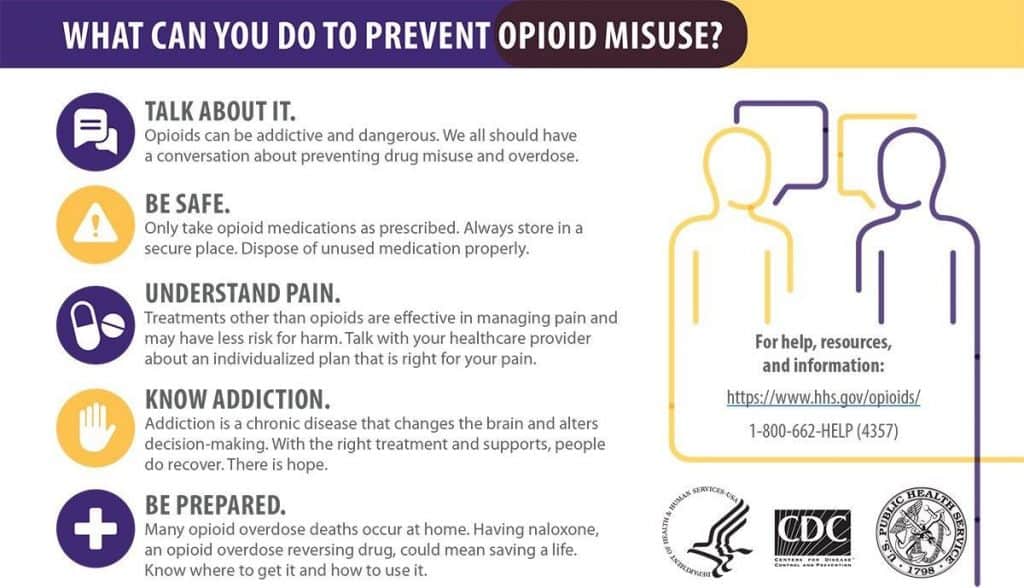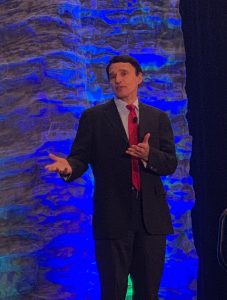To that end, CCMC develops and disseminates scientific knowledge, shares best practices, upholds ethical standards and protects patients and consumers.
The annual CCMC New World Symposium (Feb 28 to March 2, 2019) helps fulfill this mission. Vice Admiral Jerome M Adams, the Surgeon General of the United States, opened the 2019 conference in National Harbor, Maryland, with more than 400 case managers in attendance.
He focused on many of the health threats our nation faces, including opioid abuse. He shared the following Surgeon General Postcard and asked attendees to make sure all of us are aware of the actions we can take to prevent opioid misuse.

Over the three days of the conference, a variety of outstanding educational sessions touched on topics like culturally competent care, helping patients safely transition from the hospital to the home and improving mental health.
During a session titled “The Future Of American Healthcare,” I was asked to speak about my bestselling book Mistreated, Why We Think We’re Getting Good Healthcare—And Why We’re Usually Wrong.
I was thrilled to be invited given the immense respect and admiration I have for case managers. Having spent my career in Kaiser Permanente, with its collaborative structure and strong clinician leadership model, I recognized both the advantages we had in coordinating care, as well as the challenges other models must overcome.
Patients often “fall through the cracks” of today’s fragmented healthcare systems, in which doctors are (a) paid on a fee-for-service basis, (b) unable to access comprehensive medical records and (c) not encouraged to or rewarded for providing preventive care to patients. And that’s exactly the kinds of problems case managers help prevent.
Many of the attendees at the conference spend their working days trying to fill the gaps and guide patients more seamlessly through today’s fragmented system of care. They hunt and gather disparate pieces of patient medical information and clinical data to better coordinate care and help their patients avoid the high risks of medical error. Those in the audience nodded frequently as I listed the problems patients experience as a result of the flawed American healthcare system.

I began my talk by thanking the nurses and social workers in the room for the work they do on behalf of patients every day. I encouraged them to look for opportunities to evolve the care-delivery model so that we as a nation can deliver higher quality, greater convenience and more rapid access while lowering costs. I spoke about the opportunities that care coordination enables to reduce deaths from heart attacks, stroke and cancer. And I cautioned that if we can’t find ways to make healthcare more affordable, the current medical system will be disrupted.
Talking with such a sophisticated audience was fun, and the questions they asked about the future were provocative and insightful. In the 21st century, healthcare must be a team sport. Those in attendance often serve as the glue that holds all the pieces of American healthcare together.
I would like to thank Catherine Herring Capps, president of Health2 Resources, and her superb staff for organizing this event. I’d also like to thank the Commission staff. On the day of my presentation, Vice President Mike Pence spoke at another event in the same hotel. Staff members did an outstanding job managing these strategic challenges and making sure security restrictions didn’t detract from an otherwise incredible experience for all participants.
I’m eager to hear what attendees thought about the conference and what lessons they’ll take to work with them on Monday.
Finally, in case you missed it, please check out my appearance last month on the New World Symposium Speaker Podcast.
Dr. Robert Pearl is the former CEO of The Permanente Medical Group, the nation’s largest physician group. He’s the bestselling author of “Mistreated: Why We Think We’re Getting Good Health Care–And Why We’re Usually Wrong” and a Stanford University professor. Follow him on Twitter @RobertPearlMD.






